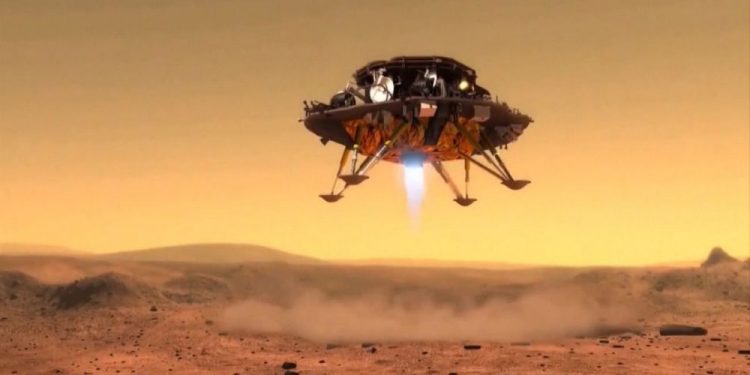China has accelerated the timeline for its Mars sample return mission, aiming to outpace NASA and become the first nation to bring back samples from the Red Planet. Originally set for 2030, China’s Tianwen-3 mission will now launch in 2028, according to Liu Jizhong, the chief designer of the mission, as reported by SpaceNews.
This decision comes as NASA’s own Mars Sample Return (MSR) mission faces major setbacks due to soaring costs and complex design challenges. NASA’s projected expenses have escalated from $8 billion to $11 billion, forcing a significant restructuring of the mission, which was initially slated for 2026. An independent review criticized NASA’s mission as overly complicated, leading the agency to seek assistance from private companies, including SpaceX and Northrup Grumman, to develop innovative solutions.
China’s Ambitious Tianwen-3 Mission
China’s Tianwen-3 mission is an extension of its successful Tianwen-1 Mars mission and has astrobiology at its core. The mission aims to find evidence of life on Mars, using cutting-edge technologies such as a helicopter and a six-legged crawler to explore key regions preselected for their astrobiological significance. Two Long March 5 rockets will be launched to deliver the ascent and landing vehicles, along with an orbiter and return module.
Chinese officials have long oscillated between launch dates of 2028 and 2030, but Liu Jizhong confirmed that the mission timeline has been advanced, setting the new target at 2028. Conditions for a Mars mission are optimal every 26 months, which gives China a relatively narrow window to execute its plans.
While China accelerates its efforts, NASA’s MSR mission is grappling with significant delays and budgetary overruns. After a scathing independent review revealed that NASA’s mission was unlikely to be completed on time or within budget, the space agency has sought help from private companies to simplify and reduce the mission’s costs. Despite these setbacks, NASA remains determined to bring Martian samples back to Earth, but its timeline remains uncertain.
China has expressed its willingness to collaborate with other nations on its Mars sample return mission. However, given the competitive nature of the space race, it remains unclear how much cooperation will actually occur, especially between the United States and China. NASA, once seen as the frontrunner in Mars exploration, may now have to wait longer to get its hands on Red Planet samples, as China pushes ahead with its ambitious mission.











